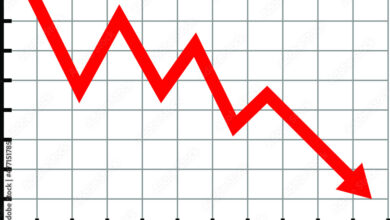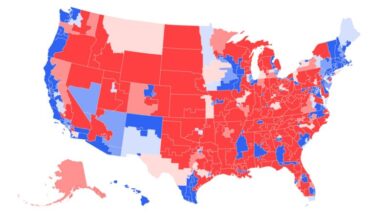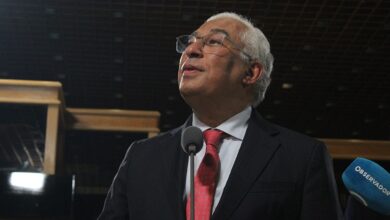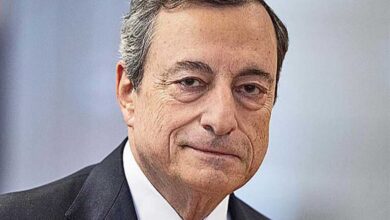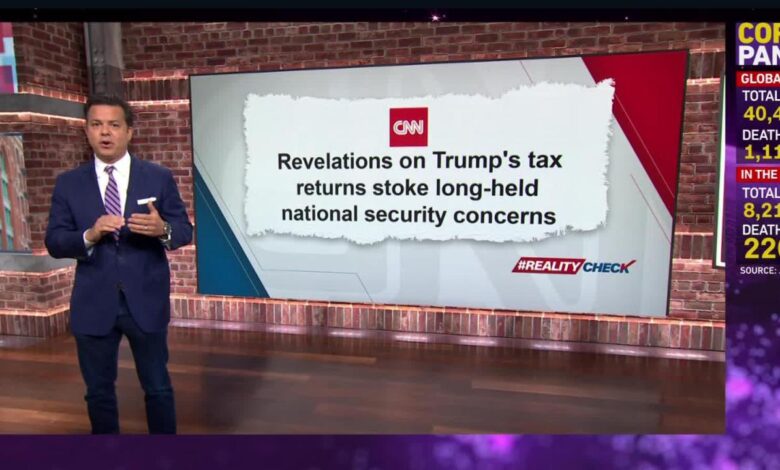
Financial Markets Betting on Trump Victory
Financial markets are betting on a Trump victory, and that’s got everyone buzzing! This isn’t just another election cycle; the potential impact on the economy is huge. We’re looking at how historical market trends during Trump’s previous presidency compare to current predictions. Get ready for a deep dive into the potential winners and losers, the geopolitical implications, and the sheer uncertainty that’s making investors nervous (and excited!).
From analyzing key indicators like the VIX and Dow Jones to dissecting Trump’s proposed policies and their effect on various sectors – energy, tech, healthcare – we’ll explore the possible scenarios. We’ll even examine alternative viewpoints and counterarguments, because let’s face it, predicting the market is never a sure thing. This isn’t just about numbers; it’s about understanding the psychology of the market and how political events can dramatically shift the landscape.
Global Implications and Geopolitical Risks
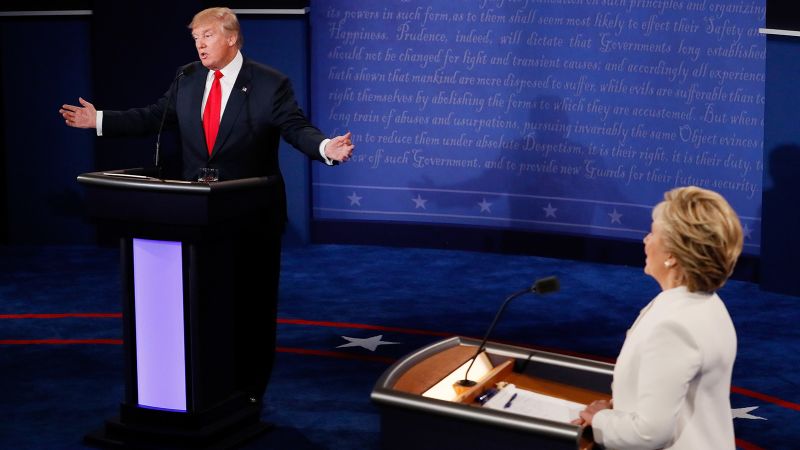
A Trump presidency, characterized by its “America First” approach, carries significant implications for global trade and geopolitical stability. His policies, often unpredictable and at odds with established international norms, could trigger substantial market volatility and reshape the global economic landscape in unforeseen ways. Understanding these potential impacts is crucial for investors and policymakers alike.International Trade Relations and Global Market EffectsA Trump victory could lead to a further escalation of trade tensions.
His past pronouncements suggest a preference for bilateral trade deals over multilateral agreements, potentially jeopardizing existing frameworks like the World Trade Organization (WTO). Increased tariffs and trade restrictions on goods from China, the European Union, and other countries could disrupt global supply chains, leading to higher prices for consumers and impacting corporate profits. The resulting uncertainty could trigger a decline in global investment and economic growth.
For example, the imposition of steel and aluminum tariffs during his first term already led to retaliatory measures from trading partners, illustrating the potential for trade wars to negatively affect global markets.
US Relations with Key Global Powers and Market Volatility
A Trump administration might prioritize strengthening relationships with some nations while alienating others. His stance on NATO and alliances with traditional partners could lead to instability and uncertainty in key regions. Strained relations with China, particularly concerning trade and technology, could cause significant market volatility, affecting sectors heavily reliant on trade with China. Conversely, improved relations with certain countries could positively impact specific markets.
So, the financial markets are clearly placing their bets on a Trump victory, which is pretty wild. This whole situation makes me wonder about the impact on social media, especially since Elon Musk confirms Twitter will revise user verification process , which could significantly alter the spread of political information and potentially influence the markets further. It’ll be interesting to see how this all plays out in the coming weeks, especially given the current betting odds favoring Trump.
For instance, a strengthened relationship with a major oil-producing nation could influence energy prices and related sectors. The unpredictability inherent in such a foreign policy approach, however, makes accurate market forecasting extremely difficult.
So, the financial markets are clearly betting on a Trump victory, and it got me thinking about global political trends. It seems like a similar undercurrent of dissatisfaction is brewing elsewhere, as evidenced by the fact that, according to this article, justin trudeau is unlikely to win the canadian election. This suggests a broader pattern of voter sentiment that could impact global markets even beyond a US election outcome.
Basically, it all points back to the markets favoring Trump – maybe they see a similar populist wave coming.
Potential Market Reactions to a Geopolitical Event
Imagine a scenario where a significant geopolitical crisis erupts – for example, a major conflict in a strategically important region. Under a Trump presidency, the market reaction would likely be amplified by pre-existing uncertainties about US foreign policy. Investors might flee to safe haven assets like gold and US Treasury bonds, causing a surge in their prices. The stock market could experience a sharp downturn, particularly in sectors sensitive to geopolitical risk.
The volatility could be exacerbated by the administration’s communication style and potential lack of clear, consistent responses to the crisis. This scenario is reminiscent of the market reactions during the early days of the Ukraine conflict, when uncertainty regarding the US response fueled significant volatility.
So, the financial markets are clearly betting on a Trump victory, which is, frankly, a bit wild. It makes me think about unexpected value in unexpected places – like the sheer amount of recoverable resources we’re overlooking. Did you know, for instance, that according to this fascinating article, theres lots of gold in urban waste dumps ?
It’s a crazy thought, but it highlights how much potential wealth is often hidden in plain sight, much like the potential outcomes of this election.
Impact on Global Investment Flows and Capital Markets
Depending on the specific geopolitical scenarios under a Trump presidency, global investment flows and capital markets could be significantly affected. A protectionist trade policy could deter foreign direct investment (FDI) into the US and lead to capital flight from emerging markets seeking more stable investment environments. Conversely, a focus on deregulation and tax cuts might attract some investment, but this effect could be offset by the uncertainty surrounding other policies.
Increased geopolitical instability could lead to a “risk-off” sentiment in global markets, causing investors to withdraw from riskier assets and seek safer havens, potentially creating a liquidity crunch in some markets. The experience of investors during the initial stages of the COVID-19 pandemic serves as a relevant example of this phenomenon.
Uncertainty and Investor Behavior: Financial Markets Are Betting On A Trump Victory
The prospect of a Trump victory, particularly given the significant policy shifts it could entail, introduces a high degree of uncertainty into financial markets. This uncertainty profoundly impacts investor behavior, leading to volatile market swings and adjustments in asset valuations. Understanding this interplay is crucial for navigating the current investment landscape.Uncertainty creates a climate of fear and doubt, making investors hesitant to commit capital.
This is especially true when potential policy changes are unpredictable or could negatively affect specific sectors. For instance, uncertainty regarding trade policy could cause investors to reassess their holdings in export-oriented companies, leading to price adjustments. Similarly, uncertainty surrounding regulatory changes in specific industries can impact valuations across those sectors. The resulting volatility often leads to increased risk aversion among investors.
Market Uncertainty Compared to Other Political Events
The level of market uncertainty surrounding a potential Trump victory is arguably comparable to, or even exceeds, that experienced during other significant political events. The Brexit vote in 2016, for example, generated substantial market volatility, driven by uncertainty about the UK’s future relationship with the European Union. However, the potential implications of a Trump presidency, particularly regarding trade and international relations, might be broader and more far-reaching, potentially leading to even greater uncertainty.
The 2008 financial crisis, while not directly related to a specific political event, also highlights the impact of significant uncertainty on investor behavior, resulting in a sharp market downturn and widespread risk aversion. The key difference is that the 2008 crisis was driven by economic factors, whereas a Trump victory involves geopolitical and policy-driven uncertainty.
Investment Strategies Based on Risk Appetite
Investors with a high risk appetite might view a Trump victory as an opportunity to capitalize on potential market dislocations. They might adopt a more aggressive strategy, focusing on sectors expected to benefit from specific Trump policies, such as infrastructure or energy. Conversely, investors with a low risk appetite are likely to adopt a more defensive approach, favoring assets perceived as safe havens, such as government bonds or gold.
Some investors might also employ hedging strategies, such as purchasing put options, to protect against potential losses in case of negative market reactions. Diversification across different asset classes remains a crucial element of risk management in this uncertain environment.
Hypothetical Investor Portfolio
A hypothetical portfolio designed to mitigate risk and capitalize on opportunities under different Trump presidency scenarios might include the following:A portion allocated to defensive assets like U.S. Treasury bonds and gold, to act as a buffer against market downturns. Another portion would be invested in sectors potentially benefiting from Trump’s policies (e.g., infrastructure stocks, energy companies). A smaller portion could be allocated to international stocks, providing diversification away from potential U.S.-centric market volatility.
Finally, a portion could be set aside for options contracts (both puts and calls), allowing the investor to hedge against losses and profit from potential market movements. The specific allocation within these categories would depend on the investor’s risk tolerance and outlook on the potential impact of a Trump presidency. For example, an investor expecting significant trade wars might increase their allocation to gold and decrease their allocation to export-oriented companies.
Conversely, an investor expecting significant infrastructure spending might increase their allocation to infrastructure-related companies. This approach allows for adaptation based on evolving information and market dynamics.
Alternative Perspectives and Counterarguments
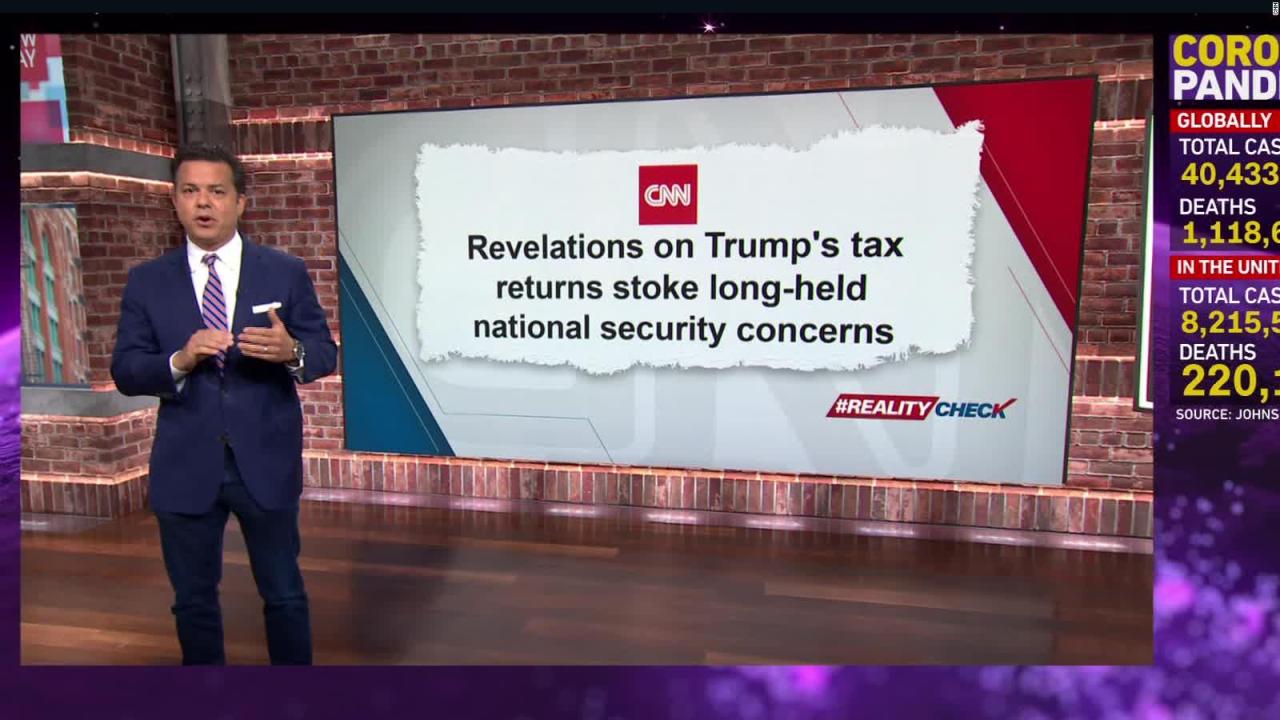
The market’s seemingly unanimous bet on a negative reaction to a Trump victory isn’t universally accepted. While many analysts predict turmoil, some offer alternative perspectives, highlighting potential scenarios that deviate from the dominant narrative of immediate economic collapse. Understanding these counterarguments is crucial for a nuanced view of the potential market response.The prevailing narrative often focuses on Trump’s protectionist trade policies and unpredictable behavior as major risks.
However, counterarguments suggest that these factors might be overblown, or that the market could adapt and even benefit in unforeseen ways. For instance, some argue that a Trump administration, despite its rhetoric, might engage in less aggressive protectionist measures than initially feared, finding pragmatic compromises to avoid significant economic disruption. Furthermore, the market’s inherent ability to anticipate and price in risk might mean that much of the negative impact is already reflected in current valuations.
Market Overreaction and Underreaction Possibilities, Financial markets are betting on a trump victory
The market’s response to a Trump victory could be significantly influenced by the degree of overreaction or underreaction to the event itself. A significant overreaction might see a sharp and immediate decline, followed by a gradual recovery as the market processes the actual policy implementations. This scenario is plausible given the tendency for markets to exhibit emotional responses to major political events.
Conversely, an underreaction could lead to a period of relative calm initially, followed by a more pronounced correction later as the true economic consequences of Trump’s policies unfold. The 2016 election, where the initial market reaction was relatively muted followed by a period of significant growth, serves as a potential precedent for such an underreaction scenario.
Factors Beyond the Immediate Political Landscape
The market’s response won’t be solely determined by the political landscape. Several other factors could significantly influence the outcome. Global economic conditions, for example, play a crucial role. A robust global economy might buffer the negative impacts of any Trump-related policy changes. Similarly, the performance of other major economies and the strength of the US dollar will also affect market sentiment.
Technological advancements and innovation, completely unrelated to the election, could also offset negative political impacts. The overall state of the corporate earnings season, independent of political influence, will also significantly shape investor confidence.
Visual Representation of Optimistic and Pessimistic Scenarios
Imagine two contrasting graphs representing the market’s potential trajectory under a Trump administration. Pessimistic Scenario: The graph resembles a steep cliff. It begins with a sharp, almost vertical drop representing an immediate market crash fueled by fear and uncertainty. The subsequent recovery is slow and gradual, represented by a long, shallow incline, signifying a protracted period of economic instability and low investor confidence.
The visual metaphor is a rollercoaster plummeting sharply before slowly climbing back up. Optimistic Scenario: This graph shows a more moderate dip initially, a brief period of uncertainty depicted by a slight downward curve. However, it quickly rebounds and displays sustained, albeit moderate, growth, shown as a steady, upward sloping line. This represents a market that quickly adapts to the new political reality, finding opportunities amidst the change.
The visual metaphor here would be a ship weathering a storm; initially rocked, it stabilizes and continues its voyage. The difference in the final destination between the two scenarios is stark, illustrating the potential range of outcomes.
So, are financial markets right to bet on a Trump victory? Only time will tell, but one thing is clear: the stakes are incredibly high. The potential for both significant gains and devastating losses is real. By understanding the historical context, the policy implications, and the inherent uncertainty, we can better navigate this turbulent period. It’s a fascinating game of economic chess, and we’re all watching the pieces move.

